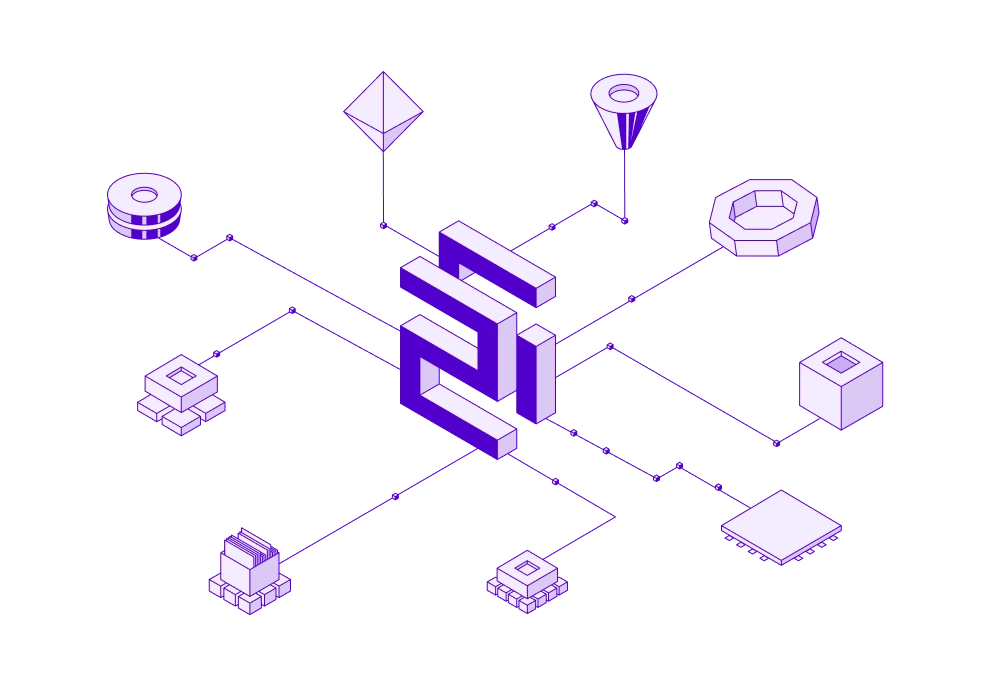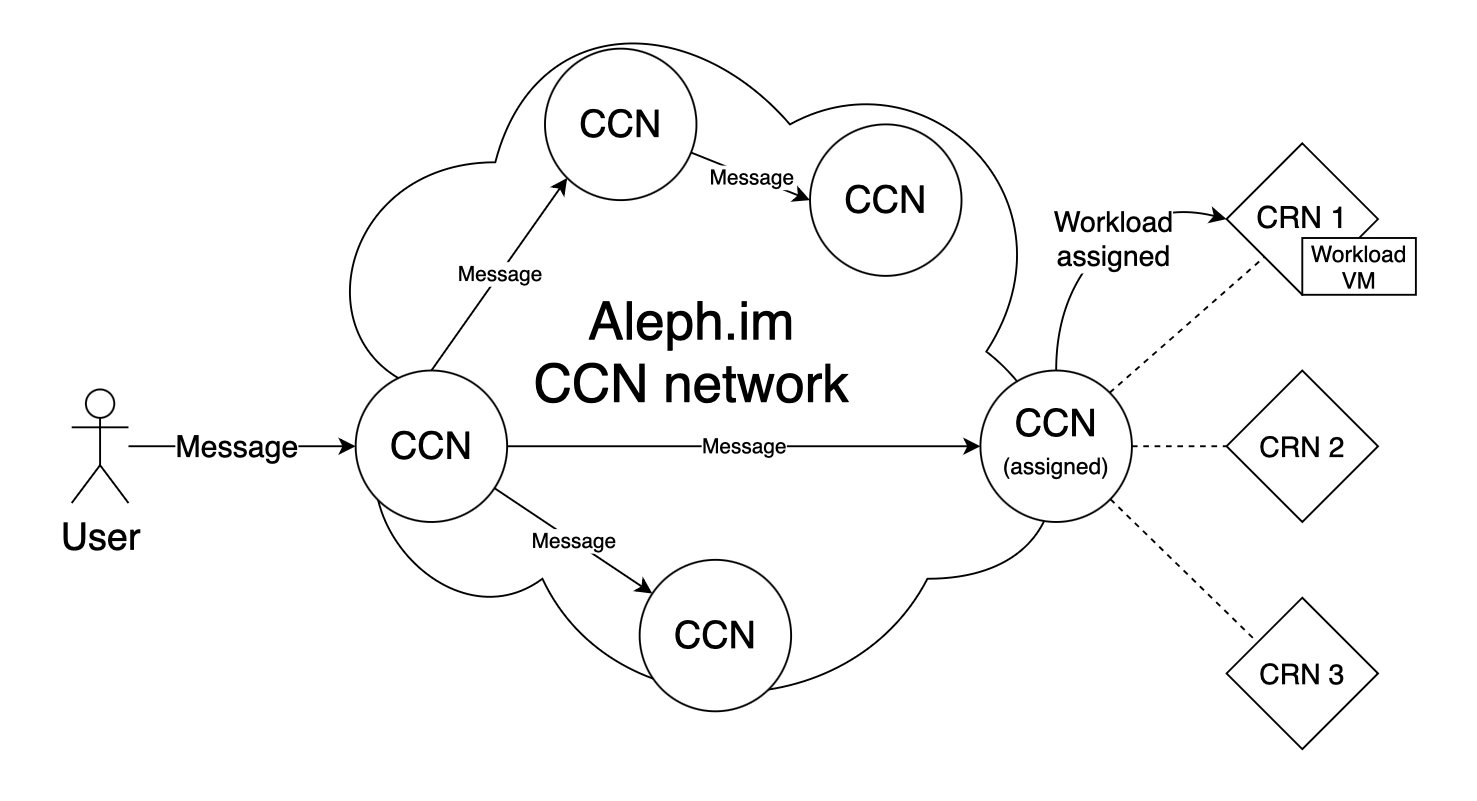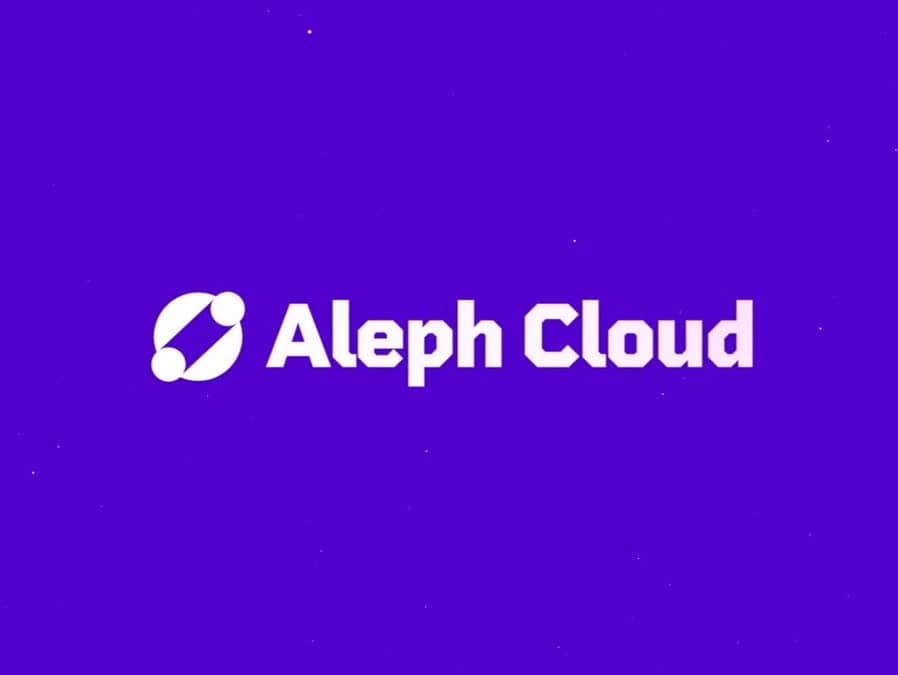Subscribe to wiki
Share wiki
Bookmark
Aleph Cloud
The Agent Tokenization Platform (ATP):Build autonomous agents with the Agent Development Kit (ADK)
0%
Aleph Cloud
Aleph Cloud (fka Aleph.im) is an open-source, off-chain peer-to-peer (P2P) network that aims to offer decentralized storage, computing, and security infrastructure for applications across various blockchains.[1][2]
Overview
Aleph Cloud, established in 2018 by Jonathan Schemoul and Claudio Pascariello, is an open-source, off-chain peer-to-peer network that aims to provide decentralized storage, computing, and virtual machine provisioning. It supports interoperability with major blockchains, including Ethereum, Tezos, and Solana.
The network consists of Core Channel Nodes (CCNs) and Compute Resource Nodes (CRNs) for managing tasks and blockchain indexing. The ALEPH token serves as a medium for payments and incentivizes node operators, incorporating a staking mechanism for accessing services. In 2024, a stream-based payment model was introduced alongside the TwentySix Cloud platform.[1][2][3]
Products
Twentysix Cloud
Aleph Cloud has introduced Twentysix Cloud, a decentralized cloud marketplace powered by its Decentralized Physical Infrastructure Network (DePIN). This platform aims to provide blockchain-based storage, compute engine, indexing, and AI solutions.
Twentysix Cloud focuses on edge optimization to facilitate efficient application hosting and deployment. It operates on a Pay-As-You-Go (PAYG) model, allowing users to pay for resources utilized, with payments accepted in ALEPH tokens or stablecoins. The platform also adheres to GDPR regulations, ensuring users retain ownership of their data stored across decentralized nodes.[4]

Architecture
Compute Resource Nodes or CRNs
Aleph Cloud's architecture is built on Compute Resource Nodes (CRNs) that aim to provide decentralized computing power, storage, and resources for tasks such as off-chain smart contract execution and dApp hosting. The peer-to-peer design enhances resilience against single points of failure.
Node operators are rewarded with ALEPH tokens, contributing to ecosystem stability. CRNs must meet specific hardware requirements, including a bare metal server, a processor with at least 8 cores, 64GB of RAM, 1TB of storage, and a minimum connectivity speed of 500 Mbit/s with both IPv4 and IPv6 configured.[5]
Core Channel Nodes, or CCNs
Core Channel Nodes aim to provide secure data storage and messaging services while ensuring network integrity through transaction processing and cross-chain communication.
To operate a node, participants are required to stake ALEPH tokens, which promotes reliability, and they receive ALEPH tokens as rewards for their contributions. Hardware requirements include a CPU with at least 4 cores, 32 GB of RAM (64 GB recommended), 4+ TB of storage, and a minimum upload bandwidth of 100 MB.[6]
Aleph Cloud Python SDK
The Aleph Cloud Python SDK aims to facilitate interaction with the Aleph.im network by allowing users to send and read signed messages. It supports functionalities such as account creation and the ability to send and read POST and AGGREGATE messages.[7]
Aleph Cloud TypeScript SDK
The Aleph.im TypeScript SDK aims to provide tools for interacting with the Aleph.im network, replacing the original aleph-ts-sdk with smaller, more manageable packages. Available on NPM, it allows users to create accounts and send or read POST and AGGREGATE messages.[8]
Python Command-Line Tool
The Aleph.im Command-Line Interface (CLI) aims to enable terminal access to Aleph.im features through the aleph-client command.
Users can install the CLI on Linux and macOS using pipx for isolated environments or create a Python virtual environment. It is also available as an OCI Image for Docker or Podman, though this method utilizes an ephemeral key that is discarded when the container stops.[9]
Web Console
The Aleph Cloud Web Console aims to simplify cloud resource management, providing support for Web3 hosting of static and dynamic websites using frameworks like Next.js and React.
It includes serverless functions, managed instances, and confidential virtual machines for flexible computing, as well as immutable volumes for secure data storage.[1][10]
Node Operator Dashboard
The Aleph Cloud Node Operator Dashboard enables staking to enhance security and decentralization, requiring a minimum of 10,000 Aleph tokens, with rewards allocated every 10 days. Core Channel Nodes (CCNs) aim to secure the network and necessitate a commitment of 200,000 tokens for governance. Compute Resource Nodes (CRNs) can be established by any user but must obtain endorsement from a CCN to qualify for minimum wages.[1][11]
Message Explorer
Aleph Cloud employs a decentralized messaging system in which data transactions are represented as messages. These messages aim to facilitate operations such as file storage, IPFS content pinning, and decentralized program creation, transmitted through Core Channel Nodes and peer-to-peer networks.[1][12]

Use Cases
Aleph Cloud's decentralized compute and storage capabilities aim to support various applications across multiple industries. Potential use cases include:
- Decentralized Social Media: Aims to ensure user privacy and control over data while processing content.
- Autonomous AI Agents: Designed to perform tasks like data analysis without relying on a central server.
- Blockchain-as-a-Service (BaaS): Facilitates the deployment and management of blockchain nodes for users.
- Decentralized VPN: Aims to enhance security by routing traffic through Aleph Cloud nodes.
-
- Secure Medical Data Sharing: Enables compliant access to patient records for healthcare providers.
- Real-time Distributed Rendering: Seeks to utilize unused compute power for efficient rendering tasks.
- Decentralized Content Delivery Network (CDN): Aims to improve load times through distributed content.
- Smart City Management: Processes IoT data for managing urban technologies effectively.
- Distributed Machine Learning: Supports collaborative projects while ensuring data privacy.
- Decentralized Autonomous Organizations (DAOs): Manages operations with secure and transparent storage.
- Digital Rights Management (DRM): Aims to track media rights for controlled content distribution.
- Global Supply Chain Monitoring: Provides real-time tracking of goods across the supply chain.
- Decentralized Video Streaming: Enables direct content distribution to audiences without intermediaries.
- Environmental Data Analysis: Aims to store and process datasets for research and policymaking.[13]
Tokenomics
Aleph Cloud Token ($ALEPH)
Aleph cloud uses the ALEPH token, a native cryptocurrency that operates across multiple blockchains. The token has two main functions: it facilitates user payments for network resources and incentivizes node operators to uphold the network's integrity. [1]
Allocation
The maximum total supply of the ALEPH token is 500 million, with allocations distributed as follows:
- Innovation Pool: 50 million tokens (10%)
- Marketing Pool: 60 million tokens (12%)
- Company Pool: 150 million tokens (30%)
- Business Development Pool: 120 million tokens (24%)
- Incentive Pool: 100 million tokens (20%)
- NULS Foundation Pool: 20 million tokens (4%)
See something wrong?
The Agent Tokenization Platform (ATP):Build autonomous agents with the Agent Development Kit (ADK)
